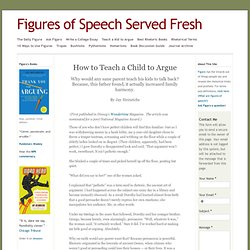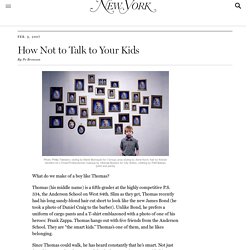

Ben Thomas: What's Halfway Between 1 and 9? Kids and Scientists Say 3. Space Euphoria: Do Our Brains Change When We Travel in Outer Space? In February, 1971, Apollo 14 astronaut Edgar Mitchell experienced the little understood phenomenon sometimes called the “Overview Effect”.

He describes being completely engulfed by a profound sense of universal connectedness. Without warning, he says, a feeing of bliss, timelessness, and connectedness began to overwhelm him. He describes becoming instantly and profoundly aware that each of his constituent atoms were connected to the fragile planet he saw in the window and to every other atom in the Universe. He described experiencing an intense awareness that Earth, with its humans, other animal species, and systems were all one synergistic whole.
He says the feeling that rushed over him was a sense of interconnected euphoria. Rusty Schweikart experienced it on March 6th 1969 during a spacewalk outside his Apollo 9 vehicle: “When you go around the Earth in an hour and a half, you begin to recognize that your identity is with that whole thing. This is done with Faraday cages. Guess who’s winning the brains race, with 100% of first graders learning to code? It’s Estonia!

We’re reading today that Estonia is implementing a new education program that will have 100 percent of publicly educated students learning to write code. Called ProgeTiiger, the new initiative aims to turn children from avid consumers of technology (which they naturally are; try giving a 5-year-old an iPad sometime) into developers of technology (which they are not; see downward-spiraling computer science university degree program enrollment stats). ProgreTiiger education will start with students in the first grade, which starts around the age of 7 or 8 for Estonians. The compsci education will continue through a student’s final years of public school, around age 16. Teachers are being trained on the new skills, and private sector IT companies are also getting involved, which makes sense, given that these entities will likely end up being the long-term beneficiaries of a technologically literate populace.
Teach a Kid to Argue - Figures of Speech. Why would any sane parent teach his kids to talk back?

Because, this father found, it actually increased family harmony. (First published in Disney’s Wondertime Magazine. The article was nominated for a 2007 National Magazine Award.) Those of you who don’t have perfect children will find this familiar: Just as I was withdrawing money in a bank lobby, my 5-year-old daughter chose to throw a temper tantrum, screaming and writhing on the floor while a couple of elderly ladies looked on in disgust. (Their children, apparently, had been perfect.) She blinked a couple of times and picked herself up off the floor, pouting but quiet.
“What did you say to her?” I explained that “pathetic” was a term used in rhetoric, the ancient art of argument. Under my tutelage in the years that followed, Dorothy and her younger brother, George, became keenly, even alarmingly, persuasive. Why on earth would any parent want that? And let’s face it: Our culture has lost the ability to usefully disagree. 'Oldest English words' identified. Some of the oldest words in English have been identified, scientists say.

Reading University researchers claim "I", "we", "two" and "three" are among the most ancient, dating back tens of thousands of years. Their computer model analyses the rate of change of words in English and the languages that share a common heritage. The team says it can predict which words are likely to become extinct - citing "squeeze", "guts", "stick" and "bad" as probable first casualties. "We use a computer to fit a range of models that tell us how rapidly these words evolve," said Mark Pagel, an evolutionary biologist at the University of Reading.
"We fit a wide range, so there's a lot of computation involved; and that range then brackets what the true answer is and we can estimate the rates at which these things are replaced through time. " Sound and concept. The Power (and Peril) of Praising Your Kids.
What do we make of a boy like Thomas?

Thomas (his middle name) is a fifth-grader at the highly competitive P.S. 334, the Anderson School on West 84th. Slim as they get, Thomas recently had his long sandy-blond hair cut short to look like the new James Bond (he took a photo of Daniel Craig to the barber). Unlike Bond, he prefers a uniform of cargo pants and a T-shirt emblazoned with a photo of one of his heroes: Frank Zappa. Thomas hangs out with five friends from the Anderson School.
They are “the smart kids.” Since Thomas could walk, he has heard constantly that he’s smart. But as Thomas has progressed through school, this self-awareness that he’s smart hasn’t always translated into fearless confidence when attacking his schoolwork. For instance, in the early grades, Thomas wasn’t very good at spelling, so he simply demurred from spelling out loud. Thomas is not alone. When parents praise their children’s intelligence, they believe they are providing the solution to this problem. Duolingo.